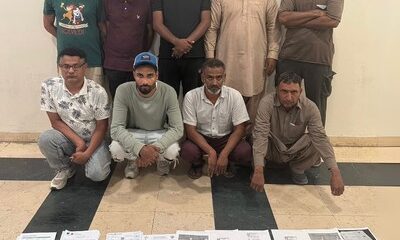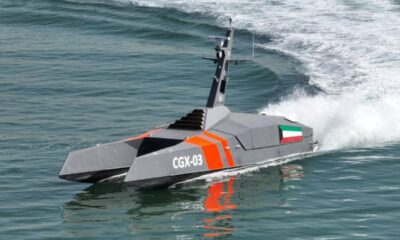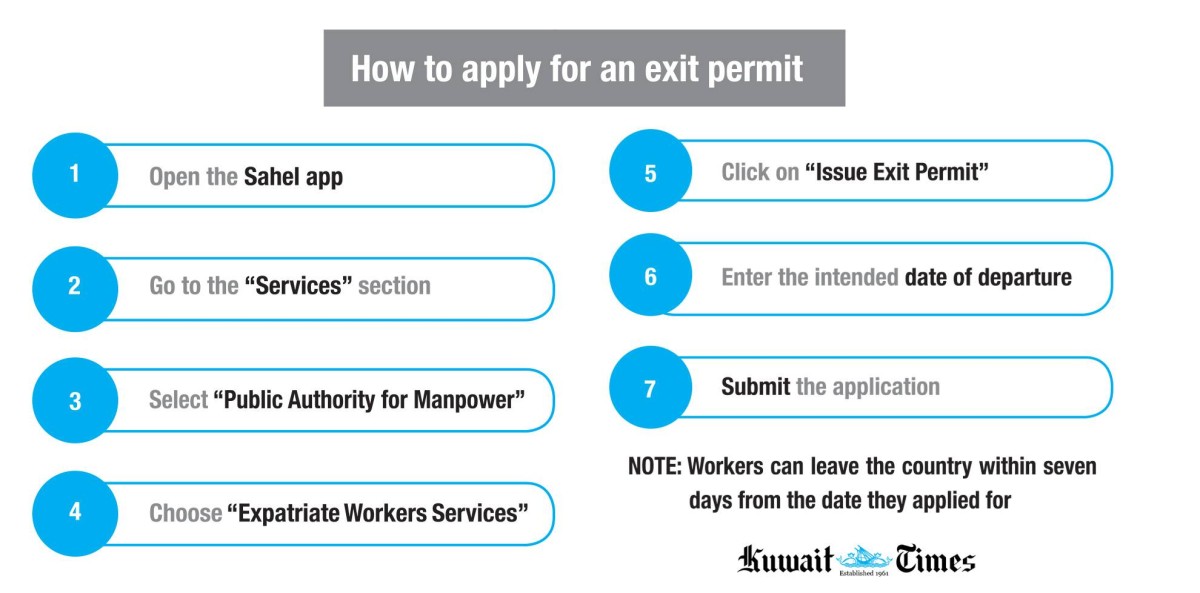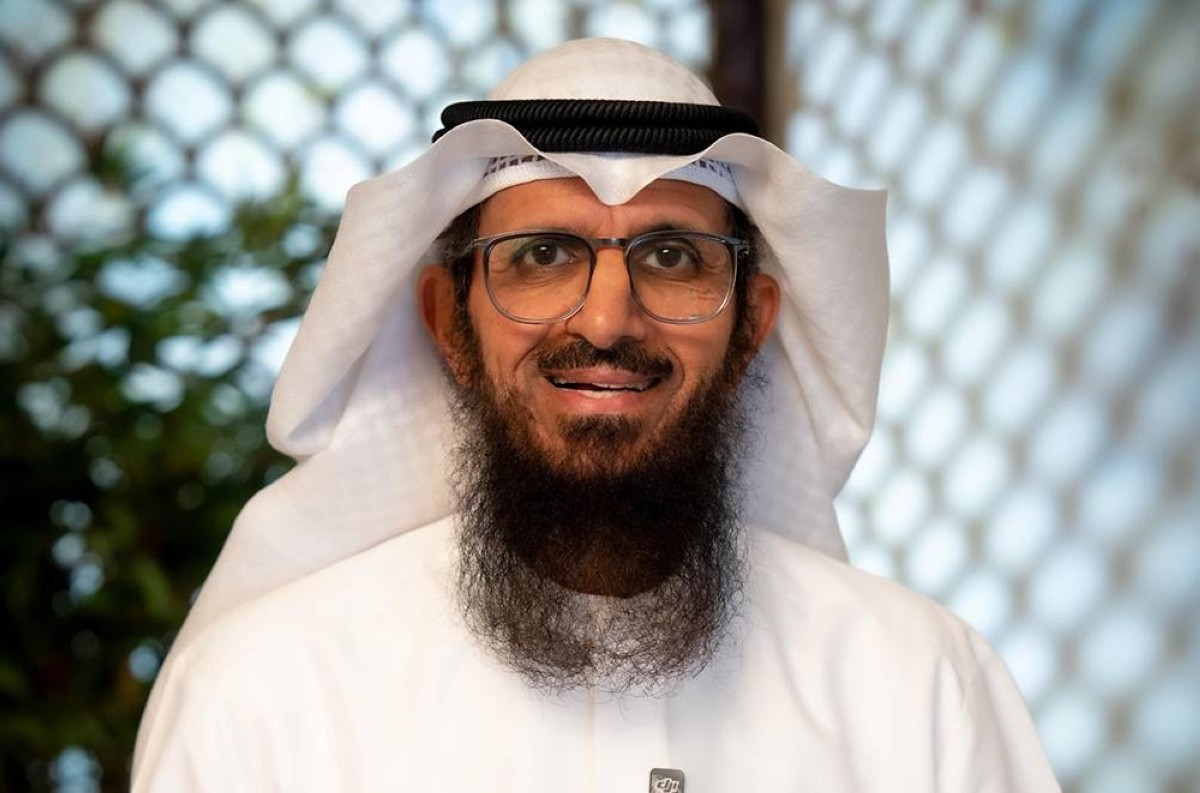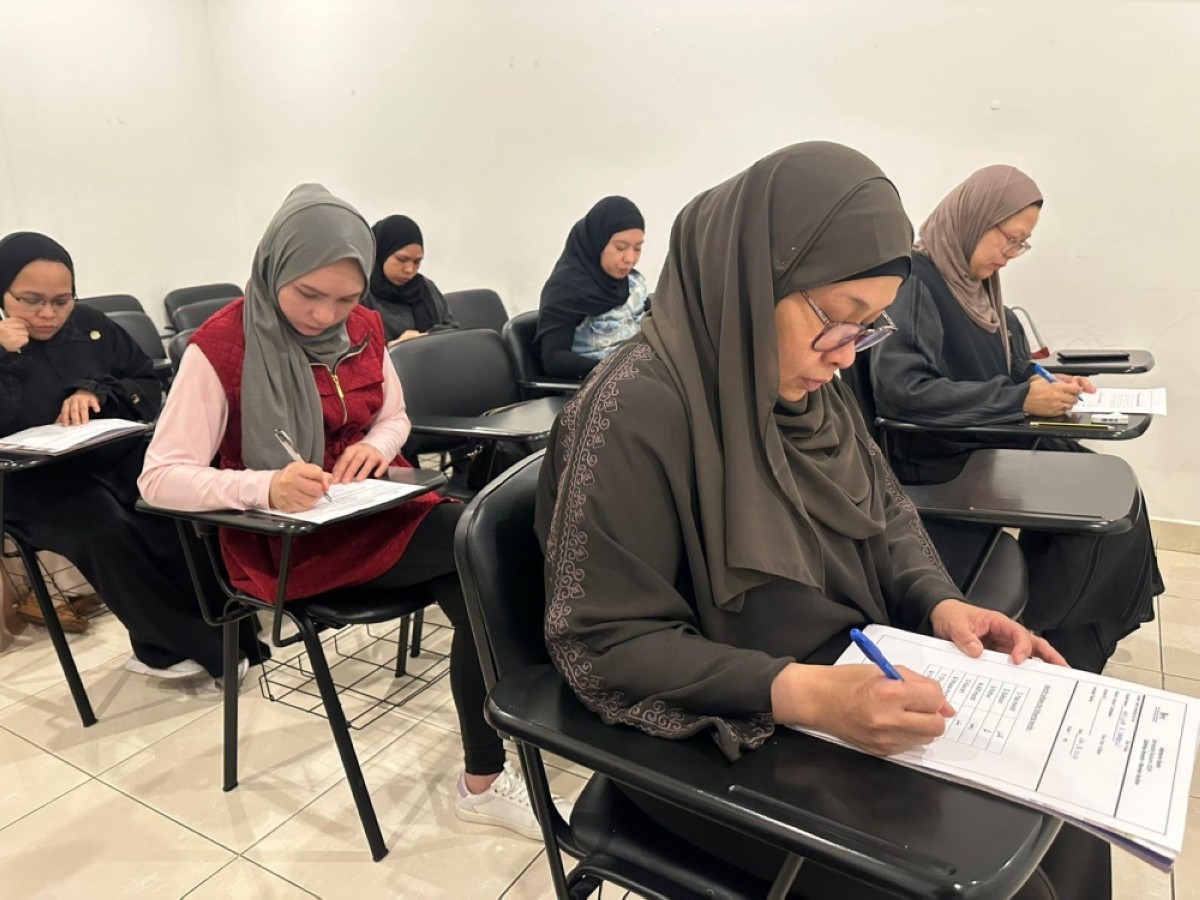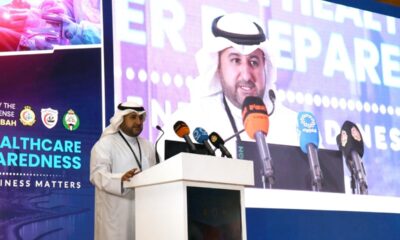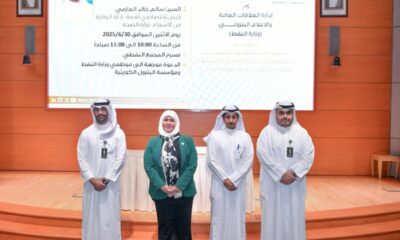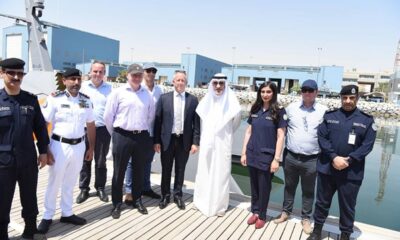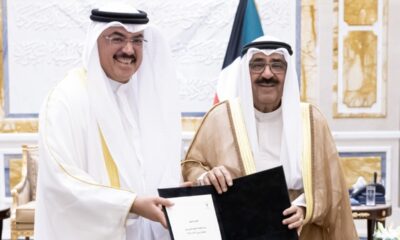KUWAIT: Bader Nasser Al-Kharafi, Zain Vice Chairman and Group CEO, welcomed John Lee Ka-chiu, Chief Executive of the Hong Kong Special Administrative Region of the People’s Republic of China, to Zain’s headquarters as part of his official visit to Kuwait. John Lee was accompanied by a high-level delegation from Hong Kong and China during his visit to Zain, which came as part of his wider visit to Kuwait from May 13–14.
His visit included meetings with His Highness the Amir Sheikh Meshal Al-Ahmad Al-Jaber Al-Sabah, His Highness the Crown Prince Sheikh Sabah Al-Khaled Al-Hamad Al-Sabah, the Acting Prime Minister Sheikh Fahad Al-Yousef Al-Sabah, and other senior government officials. Also in attendance were Sheikh Dr Basel Al-Sabah, Advisor in the Diwan of His Highness the Prime Minister; Dr Peter Lam, Chairman of the Hong Kong Trade Development Council; Nawaf Al-Gharabally, CEO of Zain Kuwait; and senior officials from both sides.
Bader Al-Kharafi stated: “We are committed to implementing the directives of His Highness the Amir Sheikh Meshal Al-Ahmad Al-Jaber Al-Sabah to advance Kuwait’s transformation into a regional hub for the digital economy and create an attractive environment for investment led by the private sector. This visit aligns with that wise vision, as Kuwait and Hong Kong enjoy longstanding friendly relations.” Al-Kharafi welcomed the Chief Executive and his accompanying delegation, adding: “The two regions collaborate across various investment, trade, and economic fields at both governmental and private sector levels. This visit presents an opportunity to expand those horizons.”
Zain Vice Chairman and Group CEO Bader Al-Kharafi and Hong Kong SAR Chief Executive John Lee
Al-Kharafi presenting Zain’s strategy during the meeting.
Bader Al-Kharafi addressing the delegation.
Bader Al-Kharafi and John Lee exchange commemorative gifts.
Bader Al-Kharafi and John Lee with the delegation and Zain’s leadership at the company’s HQ
He continued: “Hong Kong has long been recognized as one of the world’s most important international financial centers. Thanks to its strategic location, advanced infrastructure, and favorable business environment, it stands as an ideal business hub. Moreover, it is a leader in innovation and among the top global centers for asset and cross-border wealth management.” Al-Kharafi added: “Our discussions with Chief Executive John Lee and his delegation explored ways to expand digital transformation initiatives, enhance telecom infrastructure, drive business growth, and explore opportunities for collaboration in 5G networks, the Internet of Things, and potential strategic partnerships.”
He further explained: “We also explored cutting-edge applications in ICT, digital innovation, and emerging technologies, and their impact on supporting digital economies. Hong Kong is one of the world’s most service-oriented economies and is deeply involved in R&D, particularly in AI.” He continued: “This visit was also an opportunity to present the highlights of our new five-year strategy, through which we aim to reinforce Zain’s regional leadership and steer the Group’s efforts toward building the largest tech conglomerate in the Middle East and Africa.”
The visiting delegation was introduced to Zain’s 40+ year journey of achievements in telecom and technology, and its decisive steps toward becoming a fully integrated digital service provider across the Middle East and Africa. They also explored Zain’s efforts to support government and enterprise clients and its impactful initiatives in sustainability, inclusion, diversity, and equity—areas in which Zain is recognized as a leader across its footprint. The Group also presented its strategic roadmap amid major shifts in the tech sector, led by its bold five-year strategy “4WARD,” which focuses on sustainability, capability building, and targeted growth.
Zain has built a strong legacy that positions it well for future market changes. It has launched major regional entities across several business areas, including: ZainTECH, the region’s leading brand in digital services, cloud solutions, and cybersecurity, Zain Omantel International (ZOI), a game-changer in wholesale telecom, TASC Towers, the largest tower portfolio manager in the Middle East and Africa, Zain Ventures, the Group’s investment arm, Tamam, the Group’s micro-lending platform, Zain Cash, the digital wallet and money transfer service, BEDE, the fintech platform spearheading Zain’s regional financial services expansion, Dizlee, the API platform, and Zain Esports.
The “4WARD” strategy is anchored in four pillars: Customer Delight, Digital Zain, Purpose and Action, and Collaborative Growth. It offers a roadmap to expand Zain’s business footprint through sector diversification, synergy programs, and strategic partnerships—steps deemed crucial for long-term growth. The accompanying Hong Kong and Chinese delegation included senior government officials such as the Deputy Financial Secretary, Secretary for Financial Services and the Treasury, the Commissioner for the Belt and Road Initiative, and the Director-General of the Hong Kong Economic and Trade Office in Dubai.
Also present were prominent business leaders, including the Chairman of the Hong Kong Trade Development Council, CEO of the Hong Kong General Chamber of Commerce, Chairman of the Federation of Hong Kong Industries, Chairwoman of the Belt and Road General Chamber of Commerce (Hong Kong), Vice Chairperson of Bank of Communications (Hong Kong), Managing Partner and Head of Capital Markets at Gaw Capital, and senior executives from Bank of China (Hong Kong) and various leading technology, financial and consulting firms.







